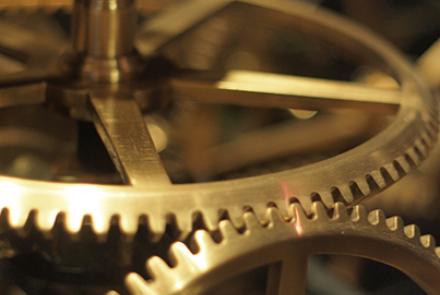
Moses and The West Wing
The realities of policy influence are more complex than they may appear from the outside, but the rewards make it worthwhile, writes Catriona Jackson.
There are a few fully-fledged fantasies about the way academics give policy advice to government.
Let’s look at two, the Moses and The West Wing models.
In our Moses scenario parliamentarians sit—like students—waiting to be nourished with knowledge only the professor can provide. The professor hands down the tablet of wisdom, and the students depart to spread the word through reinvigorated public policy.
In The West Wing model, the president, faced with a wicked problem, calls on his old Harvard pal to solve it. Said professor swoops in, applies his mind to the issues at hand and, despite a few ethically challenging moments and bit of high drama, saves the day.
These are deliberate simplifications but they touch some truths—and probably more prejudices—held by both academics and bureaucrats.
The myths highlight the gulf in mutual understanding between many academics and many policymakers, which starts with a lack of understanding about how their daily work differs.
So, are academics and policymakers like oil and water, so different that a fruitful mixing is just too hard?
No—but understanding the differences between how academics work and how public policy works helps enormously if one is to influence and interact usefully with the other.
Two of the clearest thinkers on these issues are Dr Subho Banerjee, Deputy Secretary in the Federal Department of Industry, a Rhodes Scholar with an ANU PhD in Physics, and ANU Professor of Strategic Studies Hugh White, one of the nation’s most respected public intellectuals and a former senior political adviser and bureaucrat.
Banerjee says the ‘policy factory’ is like Willy Wonka’s chocolate factory, clearly full of creativity and excitement, but with high gates obscuring the internal workings.
At a fundamental level, he says, both policymakers and academics deal in ideas, the churning, creative process of pulling and pushing them around until the best result is attained. The best result is where the difference lies.
Banerjee stresses that science does not make policy, the democratic process does.
White says the day-to-day job of an academic is to seek out the truth and to build knowledge. Public servants have quite a different job. They identify a problem or question to be answered and develop a range of solutions, taking many factors into account. Their work is about offering the best options to parliamentarians as they go about their daily business of making decisions.
Both talk much common sense. Both stress the impossibility of a good result without better understanding on both fronts, and both urge full-blooded engagement to improve the quality of public policy.
Making public policy is about balancing many factors to achieve the best result, and the input that academics make is one of those factors; it can be a powerful factor, but it is just one of a range.
So the policy-making process is a wonderful but messy contest of ideas. Given that, how does the average academic make their way in? The policy process can be usefully broken into five steps:
• defining the research question
• developing solutions (options)
• consulting
• adopting the policy
• evaluating its effectiveness.
Academic advice might be useful at any point in this process and, at a really high level, helping to define the problem to be addressed at the outset is critically important.
Navigating all this is clearly not possible without considerable effort and meaningful connections between policymakers and academics. Just knowing what stage the process is at, and what kinds of questions you might be able to usefully answer, is impossible from outside.
Making a contribution to public policy is just that, making a contribution. It is not like putting your ideas into a learned journal or giving a conference presentation. But the rewards are clear. Improving the quality of the policy that governs every part of our lives is surely worth the effort.
Read more about Governance at Policy Forum. Moses and The West Wing was first published at Policyforum.net – the website of the Asia and the Pacific Policy Society.
This article was also featured in the Summer issue of Advance, Crawford School’s quarterly public policy magazine.
The intersection between policymakers and scientists will be the subject of a day-long forum in early February at Crawford School of Public Policy; ‘Science meets Policymakers’.
Updated: 18 July 2024/Responsible Officer: Crawford Engagement/Page Contact: CAP Web Team













